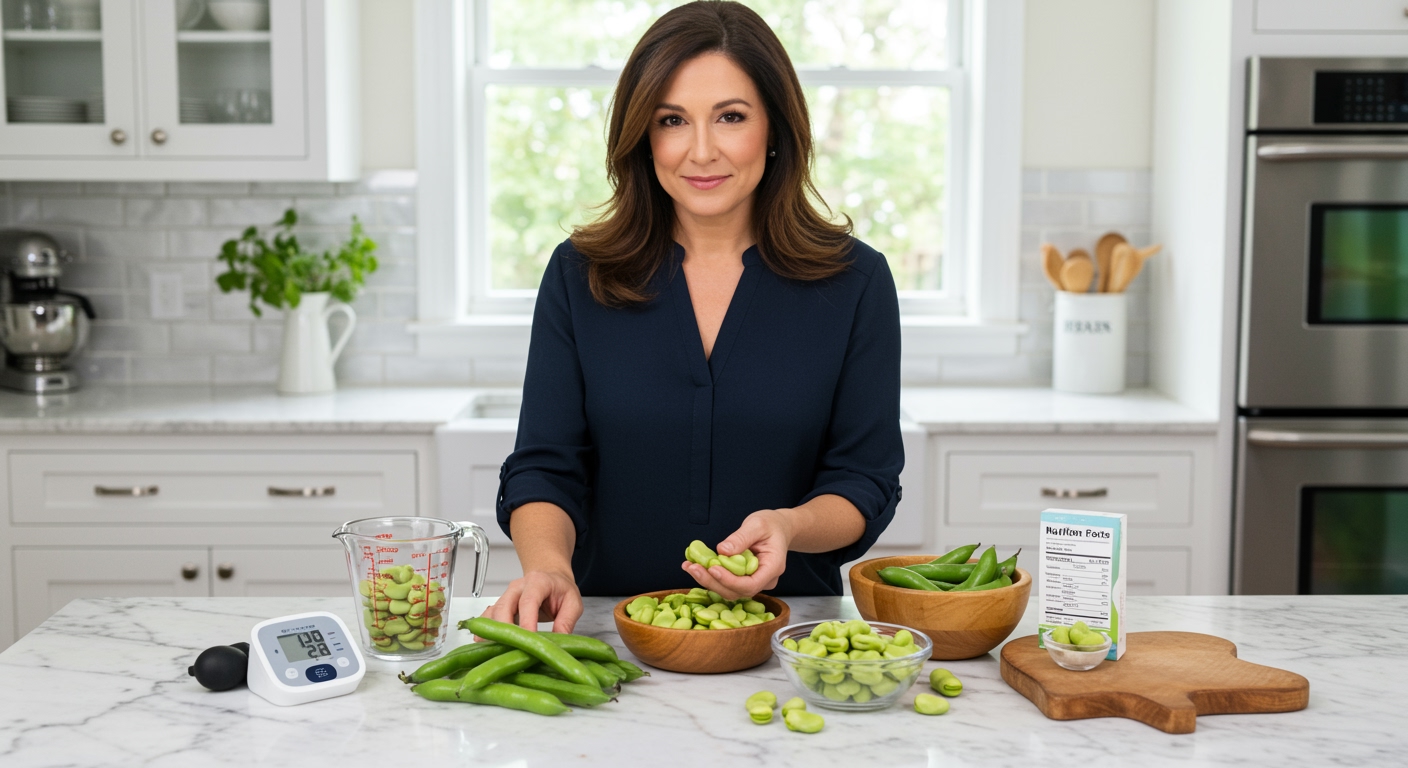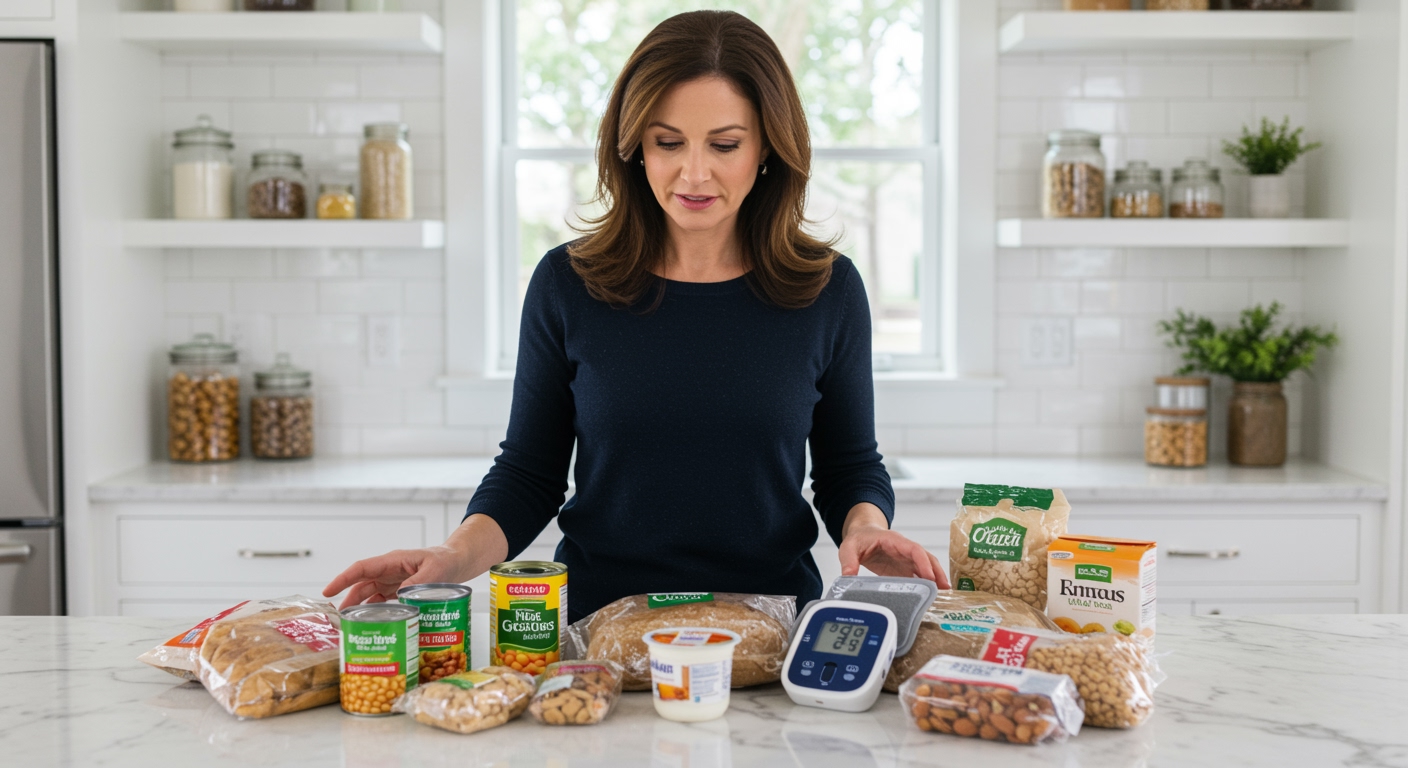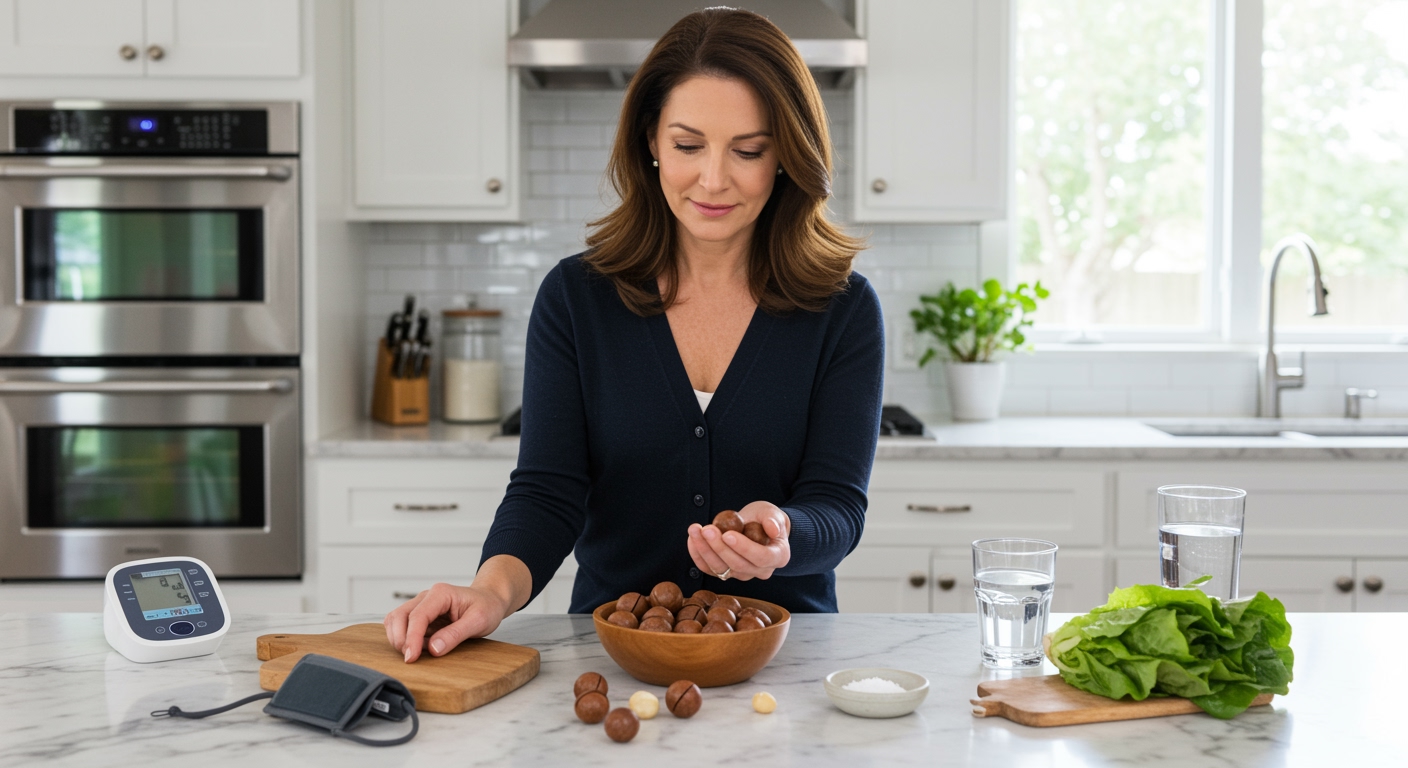✪ Key Takeaway: Fava beans can help manage hypertension through high potassium, fiber, and protein content that supports healthy blood pressure levels.
Introduction
Your doctor just told you that your blood pressure numbers are climbing, and now you are wondering if simple food changes can make a real difference.
You might be asking this question because you have heard conflicting information about beans and blood pressure, or perhaps someone mentioned that fava beans are different from other legumes when it comes to heart health.
Hi, I am Abdur, your nutrition coach, and today I am going to explain exactly how fava beans can become a powerful tool in your blood pressure management strategy.
What Makes Fava Beans Special for Blood Pressure?
Fava beans stand out from other legumes because they contain an exceptional combination of potassium, magnesium, and fiber that directly impacts your cardiovascular system.
One cup of cooked fava beans provides about 456 milligrams of potassium, which is roughly 13% of your daily needs.
This mineral works by helping your kidneys remove excess sodium from your bloodstream through increased urine production.
When sodium levels drop, your blood vessels can relax, and the volume of fluid in your circulatory system decreases.
The magnesium content in fava beans adds another layer of protection by acting as a natural calcium channel blocker.
This means magnesium prevents excessive calcium from entering your heart and blood vessel cells, which keeps your arteries from constricting too tightly.
Research shows that people who consume adequate magnesium have significantly lower rates of hypertension compared to those with deficient intake levels.
✪ Fact: Fava beans contain more potassium per serving than bananas, making them an excellent choice for blood pressure management.
How Does the Fiber Content Help Your Heart?
The soluble fiber in fava beans creates a gel-like substance in your digestive tract that binds to cholesterol particles and removes them from your body.
Lower cholesterol levels mean less plaque buildup in your arteries, which allows blood to flow more freely and reduces the pressure on your arterial walls.
One cup of cooked fava beans contains approximately 9 grams of dietary fiber, which is about 36% of the recommended daily intake for most adults.
This fiber also helps regulate blood sugar levels by slowing down the absorption of glucose into your bloodstream.
Stable blood sugar prevents the insulin spikes that can contribute to inflammation and arterial damage over time.
The insoluble fiber in fava beans supports healthy gut bacteria, which produce short-chain fatty acids that have anti-inflammatory effects throughout your cardiovascular system.
Studies indicate that people with higher fiber intake have consistently lower systolic and diastolic blood pressure readings compared to those eating low-fiber diets.
✪ Pro Tip: Start with half a cup of fava beans daily and gradually increase to avoid digestive discomfort while maximizing heart benefits.
Can the Protein Quality Make a Difference?
Fava beans provide high-quality plant protein that contains all essential amino acids your body needs for optimal cardiovascular function.
One cup delivers about 13 grams of protein, which helps maintain healthy blood vessel structure and supports the production of nitric oxide.
Nitric oxide is a molecule that signals your blood vessels to relax and dilate, which directly lowers blood pressure.
The amino acid arginine, found abundantly in fava beans, serves as a precursor to nitric oxide production in your endothelial cells.
Plant proteins like those in fava beans also help reduce the inflammatory markers that contribute to arterial stiffness and hypertension.
Unlike animal proteins, which can increase acid load in your body, plant proteins from fava beans have an alkalizing effect that supports kidney function.
Healthy kidneys are crucial for blood pressure regulation because they control fluid balance and sodium excretion in your body.
✪ Note: People with G6PD deficiency should avoid fava beans as they can trigger a serious condition called favism.
What About the Antioxidant Power?
Fava beans contain powerful antioxidants including flavonoids, phenolic compounds, and vitamin C that protect your blood vessels from oxidative damage.
These compounds neutralize free radicals that can cause inflammation and damage to the inner lining of your arteries.
The folate content in fava beans helps reduce homocysteine levels in your blood, which is important because elevated homocysteine is linked to increased cardiovascular risk.
One cup of cooked fava beans provides about 177 micrograms of folate, which is nearly half of your daily requirement.
The antioxidant quercetin found in fava bean skins has been shown to improve endothelial function and reduce blood pressure in clinical studies.
These protective compounds work synergistically with the minerals and fiber to create a comprehensive approach to cardiovascular health.
Regular consumption of antioxidant-rich foods like fava beans can help prevent the arterial stiffening that naturally occurs with age and contributes to hypertension.
✪ Fact: The darker the fava bean skin, the higher the antioxidant content, so choose beans with deep green or purple pods when possible.
How Should You Include Fava Beans in Your Diet?
Fresh fava beans require double podding, which means removing them from the outer pod and then peeling the waxy skin from each individual bean.
You can blanch fresh fava beans in boiling water for 2-3 minutes, then immediately transfer them to ice water to make the skin removal easier.
Dried fava beans need soaking overnight and cooking for 45-60 minutes until they become tender and creamy.
Add cooked fava beans to salads, soups, stews, or grain bowls to boost the nutritional value of your meals.
You can also mash cooked fava beans with olive oil, lemon juice, and herbs to create a heart-healthy spread for whole grain bread.
Aim for 2-3 servings of fava beans per week as part of a balanced diet that includes other potassium-rich foods like leafy greens and tomatoes.
Remember that consistency matters more than quantity when it comes to managing blood pressure through dietary changes.
✪ Pro Tip: Freeze blanched fava beans in single-serving portions so you always have this blood pressure-friendly food ready to use.
The Bottom Line
Fava beans can definitely play a valuable role in managing hypertension through their impressive combination of potassium, magnesium, fiber, protein, and antioxidants that work together to support healthy blood pressure levels.
Real nutrition is not about finding magic bullets, but about building a foundation of consistently good choices that support your body over time.
I would love to hear about your experience with fava beans or any questions you might have about incorporating them into your blood pressure management plan, so please share your thoughts in the comments below.
References
At NutritionCrown, we use quality and credible sources to ensure our content is accurate and trustworthy. Below are the sources referenced in creating this article:





